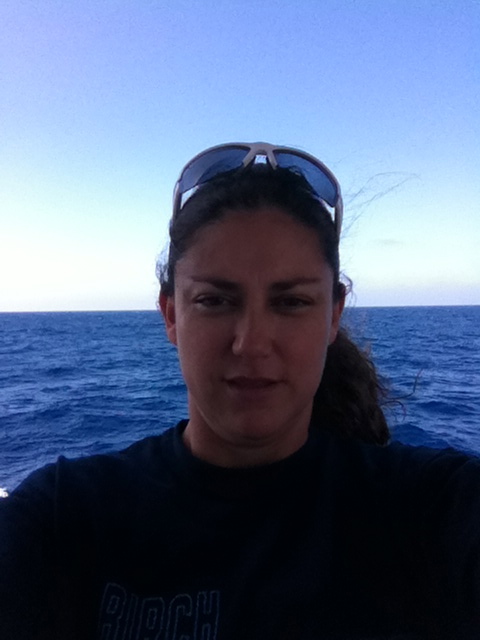|
|
Biography |
|
|
 Graduated with honors from the Autonomous University of Baja California where I majored in Oceanography and continued with Masters in Science.
Graduated in 2008 with a PhD in Oceanography from Scripps Institution of Oceanography, La Jolla, CA, USA where I worked as part of a natural products research group where we used a phylogenetic approach to the discovery of novel bioactive compounds.
I participated in two metagenomics groups as part of my postdocs from 2008-2011 and then the National Autonomous University of Mexico contacted me to offer me a position as a tenure track professor and research associate in their newest marine facility in Sisal, a small fishing town in Yucatán.
Here, in Sisal, I've continued my career as a microbial ecologist directing my work towards the study of bioactive molecule production by marine sediment bacteria.
I study microbial communities in coastal zone and open ocean sediments, and the application of genomic and metagenomic techniques to discover novel natural products.
Graduated with honors from the Autonomous University of Baja California where I majored in Oceanography and continued with Masters in Science.
Graduated in 2008 with a PhD in Oceanography from Scripps Institution of Oceanography, La Jolla, CA, USA where I worked as part of a natural products research group where we used a phylogenetic approach to the discovery of novel bioactive compounds.
I participated in two metagenomics groups as part of my postdocs from 2008-2011 and then the National Autonomous University of Mexico contacted me to offer me a position as a tenure track professor and research associate in their newest marine facility in Sisal, a small fishing town in Yucatán.
Here, in Sisal, I've continued my career as a microbial ecologist directing my work towards the study of bioactive molecule production by marine sediment bacteria.
I study microbial communities in coastal zone and open ocean sediments, and the application of genomic and metagenomic techniques to discover novel natural products.
|
|
|
|
|
|
|
Abstract |
|
|
|
|
Microbial communities from the largest underground aquifer in the world as a source of novel natural products |
|
|
|
|
|
The ability to study whole microbial populations bypassing cultivation has opened a door to one of the most productive fields in science. Thanks to metagenomic techniques the genetic capabilities of microbial populations in our planet have become available for everyone to study. The results have been overwhelming and strong efforts are now being directed towards understanding the ecological implications of this vast amount of information.
As part of a natural products discovery group we attempt to go a step further and explore the biotechnological applications of the genetic diversity found in microbial communities. In particular, we have taken a parallel approach between in vivo and in silico screenings of a metagenomic fosmid library constructed from the DNA of a microbial community of the biggest underground aquifer in the world. Our study shows the presence of 31 sequences in our metagenome related to polyketide synthases including some similar (but not identical) to five known antibiotic and anticancer compounds. The phylogenetic diversity of these enzymes suggests that novel polyketide synthases are indeed present in this microbial community, which could in turn result in the discovery of novel natural products. These results have encouraged our efforts to screen back in the fosmid library and look for the whole product pathway. Methods to explore and study this diversity will be addressed during the presentation.
|
|
|
|
|